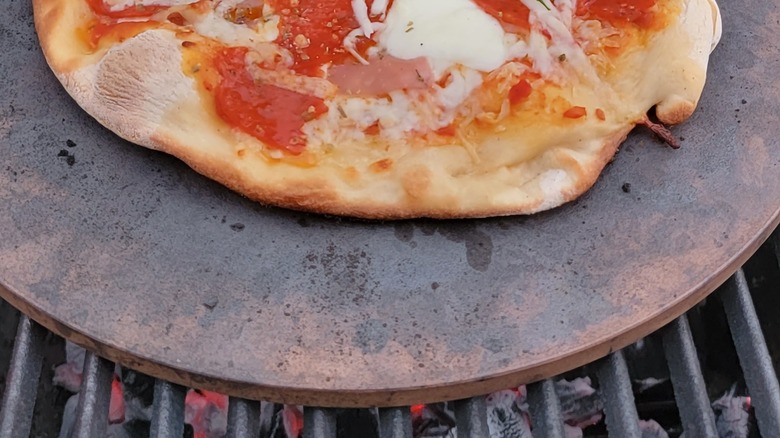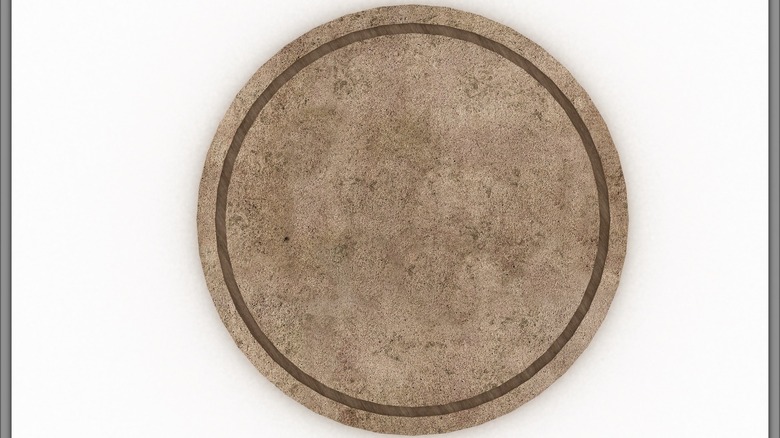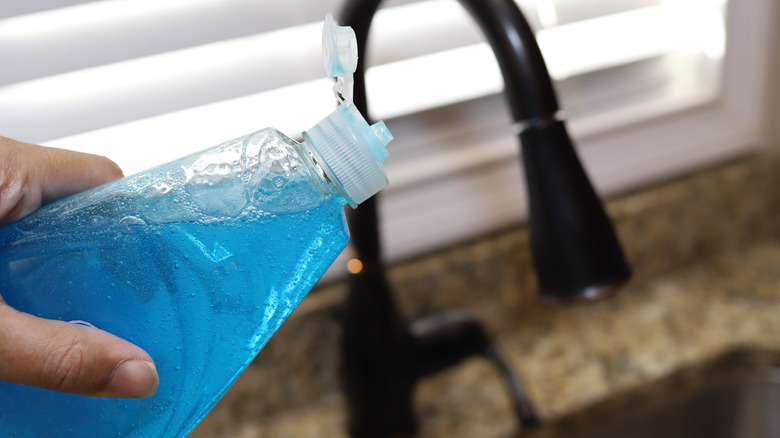The Common Cleaning Mistakes That Might Be Damaging Your Pizza Stone
For bakers, a pizza stone can make you feel like you are getting a restaurant-quality experience compared to using just a metal baking sheet when cooking your pie. Not only are pizza stones thicker and retain heat more evenly than metal pans, but they also prevent heat spikes that can burn the crust while leaving the center undercooked. They are generally sturdy and can last for years with proper care. However, you must avoid common mistakes when cleaning pizza stones, including cleaning them while hot, using too much water, and using soap.
The best thing about pizza stones is that they deliver results like traditional pizza ovens. Stones can reach and maintain high temperatures to form a crispier crust and deliver authentic pizzeria-style results. Also, the sustained heat enables browning on the bottom of the pizza, allowing for authentic flavor in the crust. The porous nature of the stone absorbs excess moisture from the dough as it cooks, creating a crispier and airier crust compared to the soggy bottom you might get on a metal pan. Unfortunately, you can unknowingly fall into faulty cleaning practices that affect the quality of your pizzas.
Don't clean pizza stones while hot
The problem with cleaning pizza stones is that seemingly normal cleaning practices, including methods for deep cleaning baking trays, can negatively affect them. One of the biggest mistakes is cleaning them when they are still hot. They need a lot of time to cool down sufficiently. A drastic or sudden temperature change can cause the stone to crack. Plan on leaving your pizza stone to the side after you use it and then clean it much later.
When you do clean it, you don't ever want to immerse it in water. Since part of its allure is its ability to absorb, it will soak up way too much water. Then it will take a very long time to thoroughly dry. Removing all the trapped water can be extremely time-consuming. Further, attempting to bake with a damp stone can lead to uneven cooking, a soggy crust, and potentially even further damage from possible cracks, rendering it unusable.
Never use use soap or detergent
Believe it or not, though detergents and soaps are typically your go-to cleaning solutions in the kitchen, they should be reserved for your dishes and other bakeware, and never be used on your pizza stone. The porous nature of the stone not only absorbs water but also soaks up soap residue. In essence, you would basically be adding an unpleasant soapy flavor to your next pizza.
Properly cleaning your pizza stone doesn't have to be complicated. First, let it cool completely, waiting several hours or overnight until the stone is cool to the touch. Next, scrape off loose debris with a bench scraper or metal spatula. Then finish by using a dry cloth to buff away any remaining stains. To remove those pesky stains, you can make a paste by mixing equal parts baking soda and water. Use the paste and a damp cloth to scrub the stone, focusing on stubborn spots. Finish by using a clean damp cloth to wipe away the residue.


